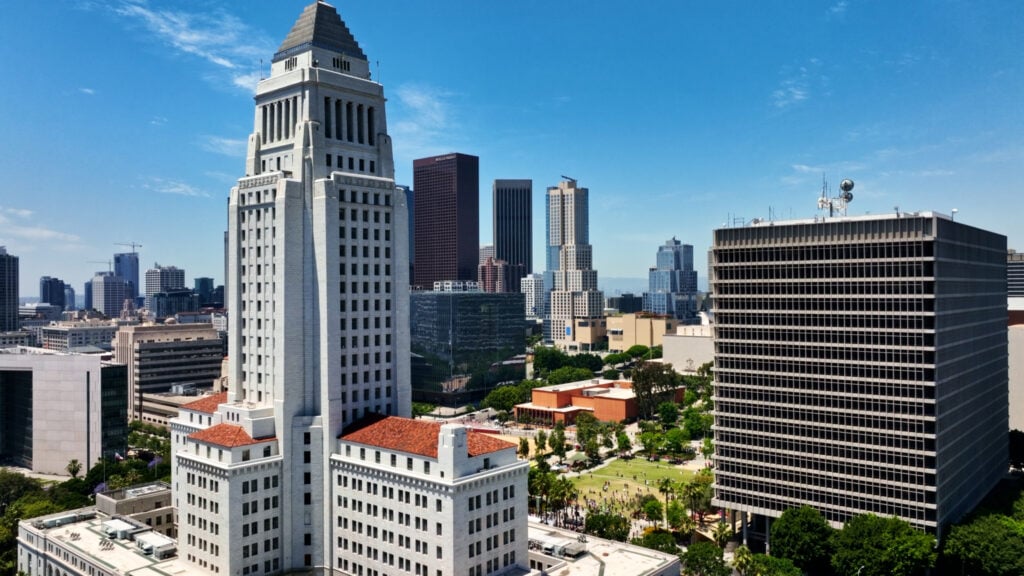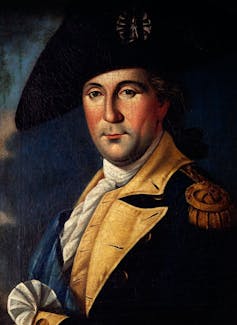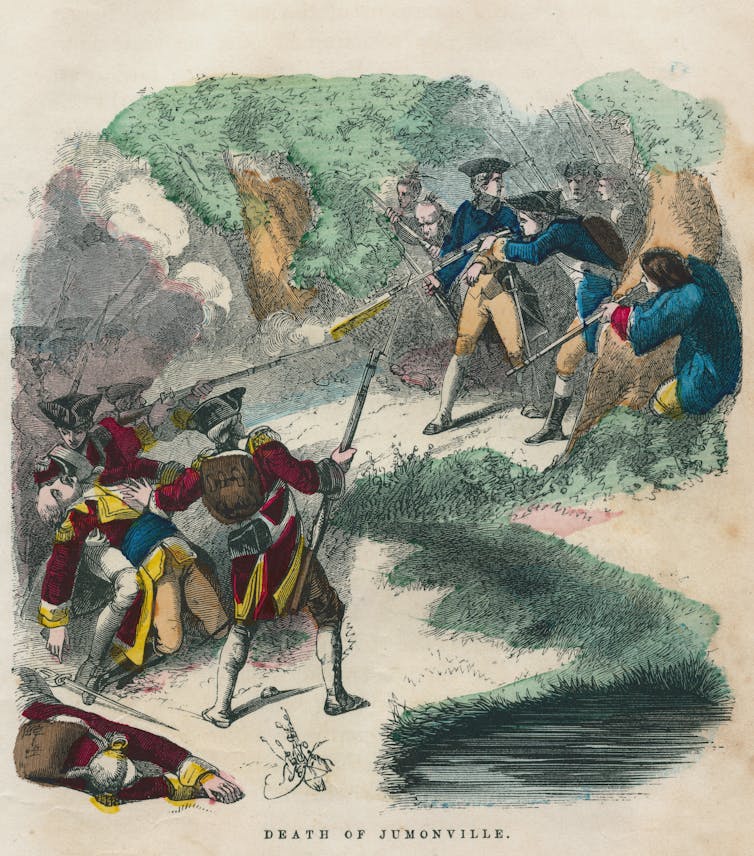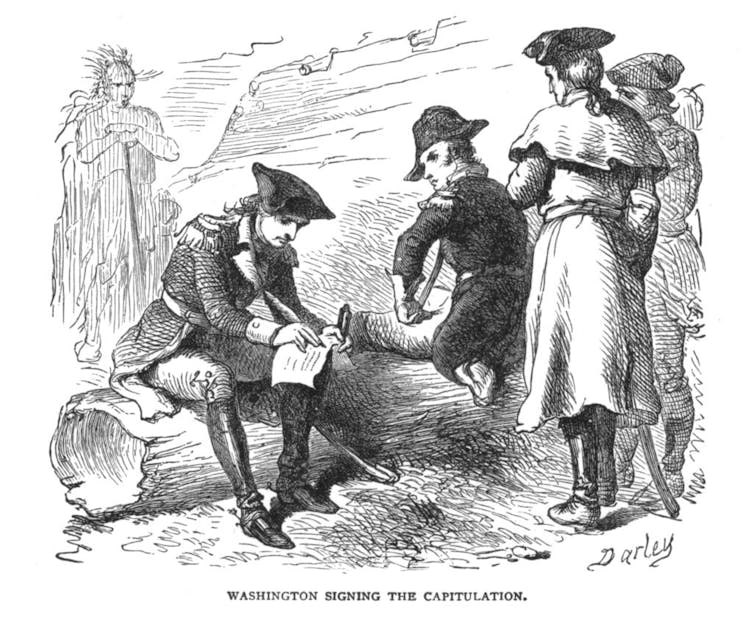STM Blog
Hard Rock International Encourages All to “LOVE OUT LOUD” this Pride Month
Hard Rock Honors Partnership with Multi-Platinum, Genre-Bending Artist Halsey with $250,000 Donation to LGBTQIA+ Causes via the Hard Rock Heals Foundation
Last Updated on July 3, 2024 by Daily News Staff
with New Limited-Edition Retail and Series of Global Events Throughout June with HALSEY
HOLLYWOOD, Fla. /PRNewswire/ — Hard Rock International is celebrating its ongoing support of the LGBTQIA+ community during Pride Month, bringing to life the brand’s core founding mottos, “Love All, Serve All” and “All Is One,” while encouraging allies everywhere to “Love Out Loud.” Throughout the month of June, Hard Rock is releasing limited-edition merchandise and participating in special activations and fundraising efforts in support of Hard Rock Heals Foundation®, the charitable arm of Hard Rock®, along with local charities and nonprofit partners that work tirelessly to serve and elevate LGBTQIA+ communities.
Recognizing Pride Month
“At Hard Rock, acts of service and authentic inclusion are engrained in our brand DNA and everyday mottos, ensuring that all Team Members and guests at our properties are treated with love and respect,” said Stephanie Piimauna, Senior Vice President and Chief Diversity & Inclusion Officer at Seminole Hard Rock. “As part of our commitment, we will continue to demonstrate allyship and amplify LGBTQIA+ voices in our local communities and around the world.”
Partnership with Halsey
To kick off Pride 2023, Hard Rock has announced a partnership with GRAMMY®-nominated, multi-platinum, genre-bending artist, Halsey – known for pushing creative boundaries, while influencing and impacting beyond music by advocating for important causes such as the LGBTQIA+ community. To celebrate the partnership and Pride Month, Hard Rock has pledged a minimum of $250,000 to the Human Rights Campaign and Outright International, via the Hard Rock Heals Foundation.
As part of the Pride Retail Collection, Halsey, who is a queer artist themself, has designed two co-branded Hard Rock x Halsey Signature Series Pride Edition T-shirts. Additionally, as part of the “Love Out Loud” campaign, Hard Rock will be hosting a private performance at Hard Rock Cafe London Old Park Lane, where the brand was founded. This VIP event will include a panel of notable guest speakers and an intimate performance by Halsey. Halsey will also donate special memorabilia to Hard Rock’s celebrated collection of more than 87,000 pieces, live during the event.
Following the private event at Old Park Lane, a special series of Halsey with String Ensemble Hard Rock Live shows will take place at Seminole Hard Rock Hotel & Casino Hollywood (June 24), Hard Rock Casino Northern Indiana (June 30) and Hard Rock Hotel & Casino Sacramento at Fire Mountain (July 2).
Limited-Edition Pride Retail Collection
In addition to the exclusive Halsey merchandise, Hard Rock is releasing a specially designed retail collection in honor of Pride Month, paying tribute to the brand’s “Love All, Serve All” and “All Is One” mottos. The uniquely designed, limited-edition merchandise, includes colorful Hard Rock t-shirts, bandanas, socks, cups, keychains and pins, of which a portion of proceeds will benefit LGBTQIA+ charities throughout the globe. The Pride 2023 retail collection is now available through July in stores and online at Rock Shops®.
Cafe Activations
Pride is a global celebration and declaration of love, which is why participating Hard Rock Cafes worldwide will be hosting a variety of local activations to proudly “Love Out Loud” alongside the LGBTQIA+ community. Activations will range from live performances to local Pride menus, customized playlists and more. Hard Rock Cafe will also participate as a sponsor in several Pride parades across the US and Europe, including those in New York City, London, Copenhagen, and Nice.
Love Out Loud Suites & Hotel Activations
Hard Rock Hotel properties around the world are partnering with notable LGBTQIA+ figures in their local communities to create exclusive experiences including one-of-a-kind curated suites, unique food and beverage offerings, entertainment experiences, Pride playlists, and community fundraising events.
In addition, Hard Rock Hotels is working with street artists known for integrating LGBTQIA+ themes in their art, to create meaningful paintings in select local communities where Hard Rock operates.
More than 70 percent of the 87,000 pieces of authentic music memorabilia on display at Hard Rock properties are dedicated to LGBTQIA+ artists and iconic moments in music history.
For additional information on how Hard Rock supports the LGBTQIA+ community and diversity, please visit www.hardrock.com/dei.aspx. Information on Hard Rock Heals Foundation can be found at www.hardrock.com/heals-foundation.aspx.
About Hard Rock Heals Foundation®:
The Hard Rock Heals Foundation is a registered 501(c)(3) charitable organization and oversees all philanthropic outreach for Hard Rock International. Music is energy; it stirs emotion, inspires, connects, and restores. The Hard Rock Heals Foundation exists to improve lives through the power of music. Since its inception in 1971, Hard Rock International has brought people together through the power of music. We have developed partnerships with artists ranging from emerging to iconic in support of charitable efforts around the world. The Hard Rock Heals Foundation provides grants and assistance to individuals whose goal is to heal through the power of music. Partnerships with like-minded, music-centric organizations allow Hard Rock Heals Foundation the opportunity to improve lives and promote wellness.
About Hard Rock®:
Hard Rock International (HRI) is one of the most globally recognized companies with venues in over 70 countries spanning 290 locations that include owned/licensed or managed Hotels, Casinos, Rock Shops®, Live Performance Venues and Cafes. HRI also launched a joint venture named Hard Rock Digital in 2020, an online sportsbook, retail sportsbook and internet gaming platform. Beginning with an Eric Clapton guitar, Hard Rock owns the world’s largest and most valuable collection of authentic music memorabilia at more than 87,000 pieces, which are displayed at its locations around the globe. Hard Rock Hotels has been honored by J.D. Power’s North America Hotel Guest Satisfaction Study as the number one brand in Outstanding Guest Satisfaction for two consecutive years, and among the top Upper Upscale Hotels for four consecutive years. HRI became the first privately-owned gaming company designated a U.S. Best Managed Company by Deloitte Private and The Wall Street Journal in 2021, and has since been honored threefold. Hard Rock was also honored by Forbes among the World’s Best Employers, as well as Best Employers for Women, Diversity and New Grads and a Top Large Employer in the Travel & Leisure, Gaming, and Entertainment Industry. In the 2022 Global Gaming Awards, Hard Rock was named Land-Based Operator of the Year for the second time in four years. In 2021, Hard Rock Hotels & Casinos received first place ranking in the Casino Gaming Executive Satisfaction Survey conducted by Bristol Associates Inc. and Spectrum Gaming Group for six of the last seven years. Hard Rock International currently holds investment grades from primary investment rating agencies: S&P Global Ratings (BBB) and Fitch Ratings (BBB). For more information on Hard Rock International, visit www.hardrock.com or shop.hardrock.com.
SOURCE Hard Rock International
The Bridge is a section of the STM Daily News Blog meant for diversity, offering real news stories about bona fide community efforts to perpetuate a greater good. The purpose of The Bridge is to connect the divides that separate us, fostering understanding and empathy among different groups. By highlighting positive initiatives and inspirational actions, The Bridge aims to create a sense of unity and shared purpose. This section brings to light stories of individuals and organizations working tirelessly to promote inclusivity, equality, and mutual respect. Through these narratives, readers are encouraged to appreciate the richness of diverse perspectives and to participate actively in building stronger, more cohesive communities.
https://stmdailynews.com/category/the-bridge
Discover more from Daily News
Subscribe to get the latest posts sent to your email.
Urbanism
The Building That Proved Los Angeles Could Go Vertical
Los Angeles once banned skyscrapers, yet City Hall broke the height limit and proved high-rise buildings could be engineered safely in an earthquake zone.
Last Updated on February 19, 2026 by Daily News Staff
How City Hall Quietly Undermined LA’s Own Height Limits
The Knowledge Series | STM Daily News
For more than half a century, Los Angeles enforced one of the strictest building height limits in the United States. Beginning in 1905, most buildings were capped at 150 feet, shaping a city that grew outward rather than upward.
The goal was clear: avoid the congestion, shadows, and fire dangers associated with dense Eastern cities. Los Angeles sold itself as open, sunlit, and horizontal — a place where growth spread across land, not into the sky.
And yet, in 1928, Los Angeles City Hall rose to 454 feet, towering over the city like a contradiction in concrete.
It wasn’t built to spark a commercial skyscraper boom.
But it ended up proving that Los Angeles could safely build one.
A Rule Designed to Prevent a Manhattan-Style City
The original height restriction was rooted in early 20th-century fears:
- Limited firefighting capabilities
- Concerns over blocked sunlight and airflow
- Anxiety about congestion and overcrowding
- A strong desire not to resemble New York or Chicago
Los Angeles wanted prosperity — just not vertical density.
The height cap reinforced a development model where:
- Office districts stayed low-rise
- Growth moved outward
- Automobiles became essential
- Downtown never consolidated into a dense core
This philosophy held firm even as other American cities raced upward.
Why City Hall Was Never Meant to Change the Rules
City Hall was intentionally exempt from the height limit because the law applied primarily to private commercial buildings, not civic monuments.
But city leaders were explicit about one thing:
City Hall was not a precedent.
It was designed to:
- Serve as a symbolic seat of government
- Stand alone as a civic landmark
- Represent stability, authority, and modern governance
- Avoid competing with private office buildings
In effect, Los Angeles wanted a skyline icon — without a skyline.
Innovation Hidden in Plain Sight
What made City Hall truly significant wasn’t just its height — it was how it was built.
At a time when seismic science was still developing, City Hall incorporated advanced structural ideas for its era:
- A steel-frame skeleton designed for flexibility
- Reinforced concrete shear walls for lateral strength
- A tapered tower to reduce wind and seismic stress
- Thick structural cores that distributed force instead of resisting it rigidly
These choices weren’t about aesthetics — they were about survival.
The Earthquake That Changed the Conversation
In 1933, the Long Beach earthquake struck Southern California, causing widespread damage and reshaping building codes statewide.
Los Angeles City Hall survived with minimal structural damage.
This moment quietly reshaped the debate:
- A tall building had endured a major earthquake
- Structural engineering had proven effective
- Height alone was no longer the enemy — poor design was
City Hall didn’t just survive — it validated a new approach to vertical construction in seismic regions.
Proof Without Permission
Despite this success, Los Angeles did not rush to repeal its height limits.
Cultural resistance to density remained strong, and developers continued to build outward rather than upward. But the technical argument had already been settled.
City Hall stood as living proof that:
- High-rise buildings could be engineered safely in Los Angeles
- Earthquakes were a challenge, not a barrier
- Fire, structural, and seismic risks could be managed
The height restriction was no longer about safety — it was about philosophy.
The Ironic Legacy
When Los Angeles finally lifted its height limit in 1957, the city did not suddenly erupt into skyscrapers. The habit of building outward was already deeply entrenched.
The result:
- A skyline that arrived decades late
- Uneven density across the region
- Multiple business centers instead of one core
- Housing and transit challenges baked into the city’s growth pattern
City Hall never triggered a skyscraper boom — but it quietly made one possible.
Why This Still Matters
Today, Los Angeles continues to wrestle with:
- Housing shortages
- Transit-oriented development debates
- Height and zoning battles near rail corridors
- Resistance to density in a growing city
These debates didn’t begin recently.
They trace back to a single contradiction: a city that banned tall buildings — while proving they could be built safely all along.
Los Angeles City Hall wasn’t just a monument.
It was a test case — and it passed.
Further Reading & Sources
- Los Angeles Department of City Planning – History of Urban Planning in LA
- Los Angeles Conservancy – History & Architecture of LA City Hall
- Water and Power Associates – Early Los Angeles Buildings & Height Limits
- USGS – How Buildings Are Designed to Withstand Earthquakes
- Los Angeles Department of Building and Safety – Building Code History
More from The Knowledge Series on STM Daily News
Discover more from Daily News
Subscribe to get the latest posts sent to your email.
The Long Track Back
Why Downtown Los Angeles Feels Small Compared to Other Cities
Downtown Los Angeles often feels “small” compared to other U.S. cities, but that’s only part of the story. With some of the tallest buildings west of the Mississippi and skyline clusters spread across the region, LA’s downtown reflects the city’s unique polycentric identity—one that, if combined, could form a true mega downtown.
Last Updated on February 18, 2026 by Daily News Staff
Panorama of Los Angeles from Mount Hollywood – California, United States
When people think of major American cities, they often imagine a bustling, concentrated downtown core filled with skyscrapers. New York has Manhattan, Chicago has the Loop, San Francisco has its Financial District. Los Angeles, by contrast, often leaves visitors surprised: “Is this really downtown?”
The answer is yes—and no.
Downtown LA in Context
Compared to other major cities, Downtown Los Angeles (DTLA) is relatively small as a central business district. For much of the 20th century, strict height restrictions capped most buildings under 150 feet, while cities like Chicago and New York were erecting early skyscrapers. LA’s skyline didn’t really begin to climb until the late 1960s.
But history alone doesn’t explain why DTLA feels different. The real story lies in how Los Angeles grew: not as one unified city center, but as a collection of many hubs.
![]()
Downtown Los Angeles
A Polycentric City
Los Angeles is famously decentralized. Hollywood developed around the film industry. Century City rose on former studio land as a business hub. Burbank became a studio and aerospace center. Long Beach grew around the port. The Wilshire Corridor filled with office towers and condos.
Unlike other cities where downtown is the place for work, culture, and finance, Los Angeles spread its energy outward. Freeways and car culture made it easy for businesses and residents to operate outside of downtown. The result is a polycentric metropolis, with multiple “downtowns” rather than one dominant core.
A Resident’s Perspective
As someone who lived in Los Angeles for 28 years, I see DTLA differently. While some outsiders describe it as “small,” the reality is that Downtown Los Angeles is still significant. It has some of the tallest buildings west of the Mississippi River, including the Wilshire Grand Center and the U.S. Bank Tower. Over the last two decades, adaptive reuse projects have transformed old office buildings into lofts, while developments like LA Live, Crypto.com Arena, and the Broad Museum have revitalized the area.
In other words, DTLA is large enough—it just plays a different role than downtowns in other American cities.
View of Westwood, Century City, Beverly Hills, and the Wilshire Corridor.
The “Mega Downtown” That Isn’t
A friend once put it to me with a bit of imagination: “If you could magically pick up all of LA’s skyline clusters—Downtown, Century City, Hollywood, the Wilshire Corridor—and drop them together in one spot, you’d have a mega downtown.”
He’s right. Los Angeles doesn’t lack tall buildings or urban energy—it just spreads them out over a vast area, reflecting the city’s unique history, geography, and culture.
A Downtown That Fits Its City
So, is Downtown LA “small”? Compared to Manhattan or Chicago’s Loop, yes. But judged on its own terms, DTLA is a vibrant hub within a much larger, decentralized metropolis. It’s a downtown that reflects Los Angeles itself: sprawling, diverse, and impossible to fit neatly into the mold of other American cities.
🔗 Related Links
Dive into “The Knowledge,” where curiosity meets clarity. This playlist, in collaboration with STMDailyNews.com, is designed for viewers who value historical accuracy and insightful learning. Our short videos, ranging from 30 seconds to a minute and a half, make complex subjects easy to grasp in no time. Covering everything from historical events to contemporary processes and entertainment, “The Knowledge” bridges the past with the present. In a world where information is abundant yet often misused, our series aims to guide you through the noise, preserving vital knowledge and truths that shape our lives today. Perfect for curious minds eager to discover the ‘why’ and ‘how’ of everything around us. Subscribe and join in as we explore the facts that matter. https://stmdailynews.com/the-knowledge/
Discover more from Daily News
Subscribe to get the latest posts sent to your email.
The Knowledge
How a 22-year-old George Washington learned how to lead, from a series of mistakes in the Pennsylvania wilderness
This Presidents Day, I’ve been thinking about George Washington − not at his finest hour, but possibly at his worst.

Christopher Magra, University of Tennessee
This Presidents Day, I’ve been thinking about George Washington − not at his finest hour, but possibly at his worst.
In 1754, a 22-year-old Washington marched into the wilderness surrounding Pittsburgh with more ambition than sense. He volunteered to travel to the Ohio Valley on a mission to deliver a letter from Robert Dinwiddie, governor of Virginia, to the commander of French troops in the Ohio territory. This military mission sparked an international war, cost him his first command and taught him lessons that would shape the American Revolution.
As a professor of early American history who has written two books on the American Revolution, I’ve learned that Washington’s time spent in the Fort Duquesne area taught him valuable lessons about frontier warfare, international diplomacy and personal resilience.
The mission to expel the French
In 1753, Dinwiddie decided to expel French fur trappers and military forces from the strategic confluence of three mighty waterways that crisscrossed the interior of the continent: the Allegheny, Monongahela and Ohio rivers. This confluence is where downtown Pittsburgh now stands, but at the time it was wilderness.
King George II authorized Dinwiddie to use force, if necessary, to secure lands that Virginia was claiming as its own.
As a major in the Virginia provincial militia, Washington wanted the assignment to deliver Dinwiddie’s demand that the French retreat. He believe the assignment would secure him a British army commission.
Washington received his marching orders on Oct. 31, 1753. He traveled to Fort Le Boeuf in northwestern Pennsylvania and returned a month later with a polite but firm “no” from the French.
Dinwiddie promoted Washington from major to lieutenant colonel and ordered him to return to the Ohio River Valley in April 1754 with 160 men. Washington quickly learned that French forces of about 500 men had already constructed the formidable Fort Duquesne at the forks of the Ohio. It was at this point that he faced his first major test as a military leader. Instead of falling back to gather more substantial reinforcements, he pushed forward. This decision reflected an aggressive, perhaps naive, brand of leadership characterized by a desire for action over caution.
Washington’s initial confidence was high. He famously wrote to his brother that there was “something charming” in the sound of whistling bullets.
The Jumonville affair and an international crisis
Perhaps the most controversial moment of Washington’s early leadership occurred on May 28, 1754, about 40 miles south of Fort Duquesne. Guided by the Seneca leader Tanacharison – known as the “Half King” – and 12 Seneca warriors, Washington and his detachment of 40 militiamen ambushed a party of 35 French Canadian militiamen led by Ensign Joseph Coulon de Jumonville. The Jumonville affair lasted only 15 minutes, but its repercussions were global.
Ten of the French, including Jumonville, were killed. Washington’s inability to control his Native American allies – the Seneca warriors executed Jumonville – exposed a critical gap in his early leadership. He lacked the ability to manage the volatile intercultural alliances necessary for frontier warfare.
Washington also allowed one enemy soldier to escape to warn Fort Duquesne. This skirmish effectively ignited the French and Indian War, and Washington found himself at the center of a burgeoning international crisis.
Defeat at Fort Necessity
Washington then made the fateful decision to dig in and call for reinforcements instead of retreating in the face of inevitable French retaliation. Reinforcements arrived: 200 Virginia militiamen and 100 British regulars. They brought news from Dinwiddie: congratulations on Washington’s victory and his promotion to colonel.
His inexperience showed in his design of Fort Necessity. He positioned the small, circular palisade in a meadow depression, where surrounding wooded high ground allowed enemy marksmen to fire down with impunity. Worse still, Tanacharison, disillusioned with Washington’s leadership and the British failure to follow through with promised support, had already departed with his warriors weeks earlier. When the French and their Native American allies finally attacked on July 3, heavy rains flooded the shallow trenches, soaking gunpowder and leaving Washington’s men vulnerable inside their poorly designed fortification.
The battle of Fort Necessity was a grueling, daylong engagement in the mud and rain. Approximately 700 French and Native American allies surrounded the combined force of 460 Virginian militiamen and British regulars. Despite being outnumbered and outmaneuvered, Washington maintained order among his demoralized troops. When French commander Louis Coulon de Villiers – Jumonville’s brother – offered a truce, Washington faced the most humbling moment of his young life: the necessity of surrender. His decision to capitulate was a pragmatic act of leadership that prioritized the survival of his men over personal honor.
The surrender also included a stinging lesson in the nuances of diplomacy. Because Washington could not read French, he signed a document that used the word “l’assassinat,” which translates to “assassination,” to describe Jumonville’s death. This inadvertent admission that he had ordered the assassination of a French diplomat became propaganda for the French, teaching Washington the vital importance of optics in international relations.
Lessons that forged a leader
The 1754 campaign ended in a full retreat to Virginia, and Washington resigned his commission shortly thereafter. Yet, this period was essential in transforming Washington from a man seeking personal glory into one who understood the weight of responsibility.
He learned that leadership required more than courage – it demanded understanding of terrain, cultural awareness of allies and enemies, and political acumen. The strategic importance of the Ohio River Valley, a gateway to the continental interior and vast fur-trading networks, made these lessons all the more significant.
Ultimately, the hard lessons Washington learned at the threshold of Fort Duquesne in 1754 provided the foundational experience for his later role as commander in chief of the Continental Army. The decisions he made in Pennsylvania and the Ohio wilderness, including the impulsive attack, the poor choice of defensive ground and the diplomatic oversight, were the very errors he would spend the rest of his military career correcting.
Though he did not capture Fort Duquesne in 1754, the young George Washington left the woods of Pennsylvania with a far more valuable prize: the tempered, resilient spirit of a leader who had learned from his mistakes.
Christopher Magra, Professor of American History, University of Tennessee
This article is republished from The Conversation under a Creative Commons license. Read the original article.
Dive into “The Knowledge,” where curiosity meets clarity. This playlist, in collaboration with STMDailyNews.com, is designed for viewers who value historical accuracy and insightful learning. Our short videos, ranging from 30 seconds to a minute and a half, make complex subjects easy to grasp in no time. Covering everything from historical events to contemporary processes and entertainment, “The Knowledge” bridges the past with the present. In a world where information is abundant yet often misused, our series aims to guide you through the noise, preserving vital knowledge and truths that shape our lives today. Perfect for curious minds eager to discover the ‘why’ and ‘how’ of everything around us. Subscribe and join in as we explore the facts that matter. https://stmdailynews.com/the-knowledge/
Discover more from Daily News
Subscribe to get the latest posts sent to your email.
